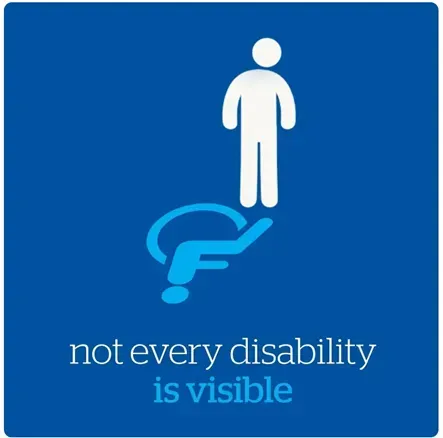





The food supply in the United States is among the safest in the world. However, when certain disease-causing bacteria or pathogens contaminate food, they can cause foodborne illness, often called “food poisoning.” The Federal government estimates that there are about 48 million cases of foodborne illness annually – the equivalent of sickening 1 in 6 Americans each year. And each year, these illnesses result in an estimated 128,000 hospitalizations and 3,000 deaths.
Consuming dangerous foodborne bacteria will usually cause illness within 1 to 3 days of eating the contaminated food. However, sickness can also occur within 20 minutes or up to 6 weeks later. Symptoms of foodborne illness can include: vomiting, diarrhea, and abdominal pain – and flu-like symptoms, such as fever, headache, and body ache.
Although most healthy people will recover from a foodborne illness within a short period of time, some can develop chronic, severe, or even life-threatening health problems. In addition, some people are at a higher risk for developing foodborne illness, including pregnant women, young children, older adults, and people with weakened immune systems (such as transplant patients and individuals with HIV/AIDS, cancer, or diabetes). To keep your family safer from food poisoning, follow these four simple steps: clean, separate, cook, and chill.
- Wash your hands with warm water and soap for at least 20 seconds before and after handling food and after using the bathroom, changing diapers, and handling pets.
- Wash your cutting boards, dishes, utensils, and counter tops with hot soapy water after preparing each food item.
- Consider using paper towels to clean up kitchen surfaces. If you use cloth towels, launder them often in the hot cycle.
- Rinse fresh fruits and vegetables under running tap water, including those with skins and rinds that are not eaten. Scrub firm produce with a clean produce brush.
- With canned goods, remember to clean lids before opening.
- Separate raw meat, poultry, seafood, and eggs from other foods in your grocery shopping cart, grocery bags, and refrigerator.
- Use one cutting board for fresh produce and a separate one for raw meat, poultry, and seafood.
- Never place cooked food on a plate that previously held raw meat, poultry, seafood, or eggs unless the plate has been washed in hot, soapy water.
- Don’t reuse marinades used on raw foods unless you bring them to a boil first.
- Color and texture are unreliable indicators of safety.
Using a food thermometer is the only way to
ensure the safety of meat, poultry, seafood, and
egg products for all cooking methods. These
foods must be cooked to a safe minimum internal
temperature to destroy any harmful bacteria.
- Cook eggs until the yolk and white are firm. Only
use recipes in which eggs are cooked or heated
thoroughly.
- When cooking in a microwave oven, cover food, stir,
and rotate for even cooking. If there is no turntable,
rotate the dish by hand once or twice during
cooking. Always allow standing time, which
completes the cooking, before checking the internal
temperature with a food thermometer.
- Bring sauces, soups and gravy to a boil when
reheating.
- Use an appliance thermometer to be sure the
temperature is consistently 40° F or below and
the freezer temperature is 0° F or below.
- Refrigerate or freeze meat, poultry, eggs,
seafood, and other perishables within 2 hours
of cooking or purchasing. Refrigerate within 1
hour if the temperature outside is above 90° F.
- Never thaw food at room temperature, such as
on the counter top. There are three safe ways
to defrost food: in the refrigerator, in cold water,
and in the microwave. Food thawed in cold
water or in the microwave should be cooked
immediately.
- Always marinate food in the refrigerator.
- Divide large amounts of leftovers into shallow
containers for quicker cooling in the refrigerator.
If you think that you or
a family member has a
foodborne illness, contact
your healthcare provider
immediately. Also, report the suspected
foodborne illness to FDA in either of these
ways:
• Contact the Consumer Complaint
Coordinator in your area. Locate
a coordinator here: https://www.fda.gov/safety/report-problem-fda/consumer-complaint-coordinators
• Contact MedWatch, FDA’s Safety
Information and Adverse Event
Reporting Program:
- By Phone: 1-800-FDA-1088
- Online: File a voluntary report at http://www.fda.gov/medwatch
For more information, contact the U.S. Food and Drug Administration, Center for Food Safety and Applied Nutrition’s Food and Cosmetic Information Center at 1-888-SAFEFOOD (toll free), Monday through Friday 10 AM to 4 PM ET (except Thursdays from 12:30 PM to 1:30 PM ET and Federal holidays). Or, visit the FDA website at http://www.fda.gov/educationresourcelibrary.






Address :
688 E. Main St. Salisbury, MD 21804
E-mail: whitney@UNA1.org
Toll Free Phone : 1-800-776-5694
Local Phone: 410-543-0665
Fax:
410-543-0432
To discuss employment opportunities in Cecil, Talbot, Kent, Dorchester, Worcester, please call: Heather Snell. (EXT. #103)